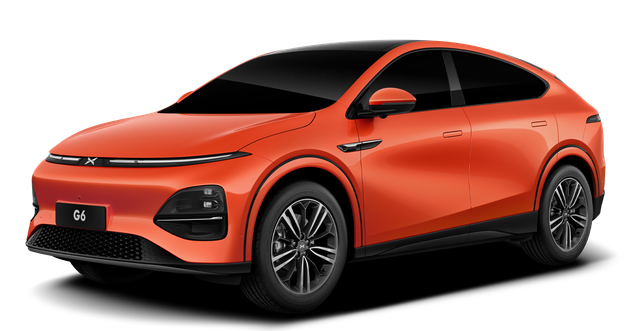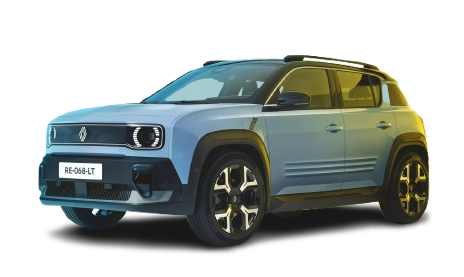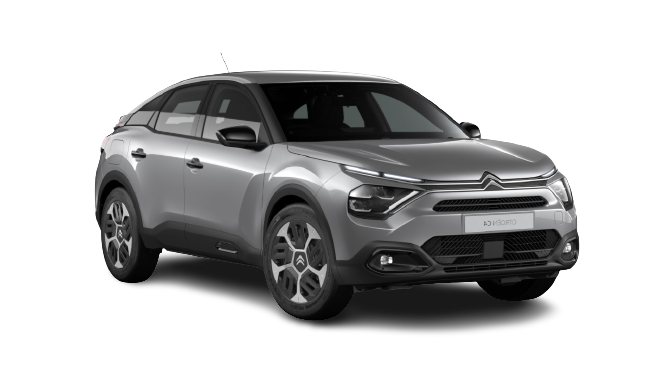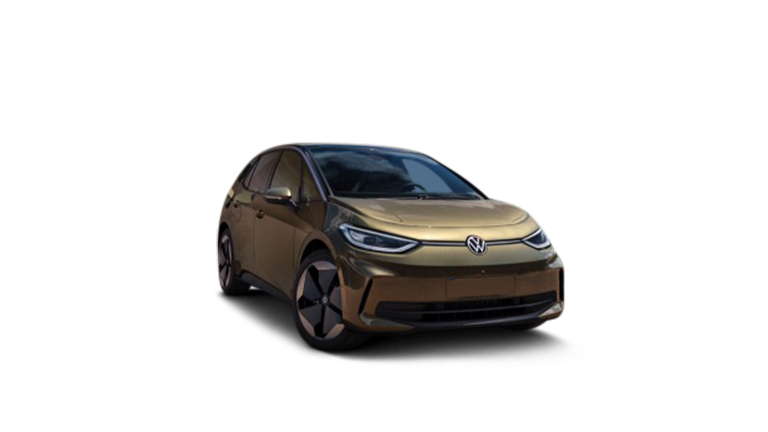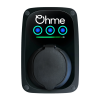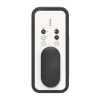What's the point of a charging cable?
First of all, let's start at the beginning: a charging cable is used to recharge your car, as you'd expect! But there are several advantages. First of all, having your own charging cable means you'll always have a charging cable that's compatible with your car.
There are even charging cables that are compatible with all (or the vast majority of) installed charging stations, such as Powerlink charging cable.
Find out more: choosing the right recharging point installer
Having your own cable gives you the freedom to recharge and travel around the world, as well as enabling you to recharge your electric car faster, depending on the power supported by the cable.
For example, manufacturers often supply recharging cables to plug into a standard electrical socket, but recharging is very, very slow...
Install your own charging station and have your own charging cable might be more practical. Likewise, if you want to recharge your electric vehicle at a public charging station, it's simpler and safer to have your own charging cable, to make sure it's compatible with your vehicle and has the right charging power.
Find out more: guide to installing a charging station in a condominium
What are the different types of charging cable?
First of all, it's important to know that, depending on the country you're in, there are different standards for charging cables which explains why there are several different types.
Let's start with France. The good news is that regulations and standards are the same throughout the European Union, so whether you're in France, Germany or Italy, you're guaranteed to find charging stations that are compatible with your vehicle - how convenient is that?
In Europe, the two types of charging cable are Type 2 and Combo CCS. Here's a closer look at these two types of charging cables.
Charging cable and Type 2 plug
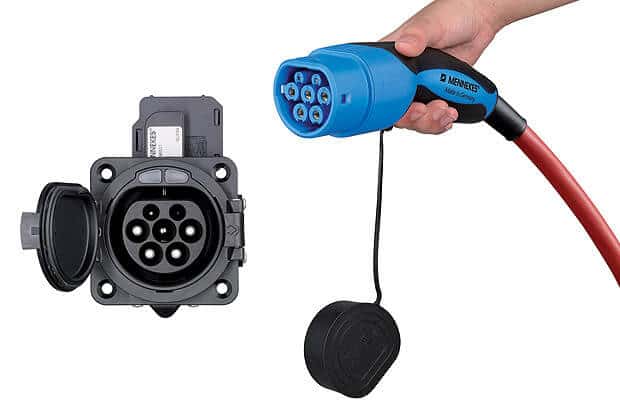
This is now the European standard. The type 2 socket for alternating current (AC) recharging is now widespread in Europe, and can be found on the majority of public and private recharging stations, as well as on most of the latest vehicles!
In short, it's THE essential charging cable for your car.
The advantage of this type 2 charging cable charging cable is that, in theory, it can recharge up to 43kW, and even up to 120 kW at Tesla!
Nevertheless, most type 2 recharges are carried out at 7kW or 22kW, thanks to charging stations and on-board chargers.
Charging cable and CCS Combo plug
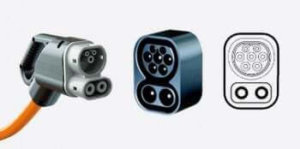
The Combo CCS plug was launched in 2016, operating on direct current and dedicated to fast charging. This type of plug was then designated as the European standard with the Type 2 plug, and thus began to erase its main rival, the CHAdeMO plug. Today, Combo CCS plugs are found on the vast majority of vehicles, charging stations and charging cables.
Charging cable and type 1 plug
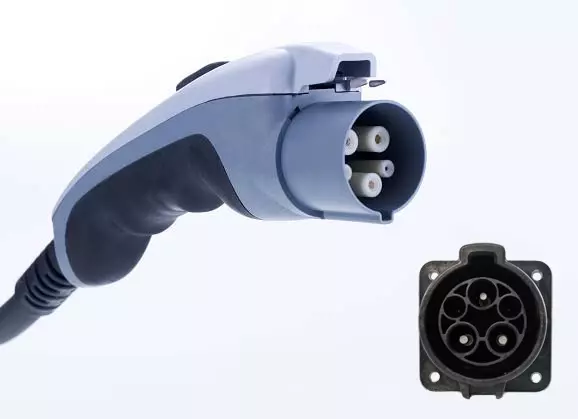
If you're familiar with it, it's safe to say you're an old hand at electrics! Still very popular in Japan and the USA, the Type 1 plug has almost completely disappeared in Europe, where it is no longer used. It was used on the first electric cars to hit the market: Peugeot iOn - Citroën C-Zero - Mitsubishi iMiev and the first-generation Nissan Leaf! Since then, the arrival of the Type 2 plug has contributed to the extinction of the Type 1 plug in Europe. So there's no need to buy a charging cable for this type of plug!
Charging cable and type 3 plug
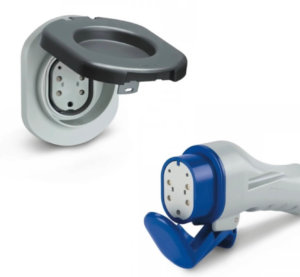
Like the Type 1 plug, the Type 3 plug is even older, and was used on the very first electric cars. Since then, it has been in the running to become the European standard, before being beaten by Type 2! It can still be found on some public charging points in France, or on some recharging cables, but its end is very near!
Charging cable and CHAdeMO plug
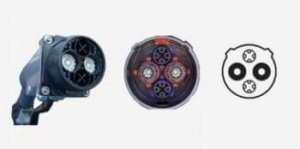
For several years, the CHAdeMO plug was the leading international standard for DC fast charging. Launched at the initiative of Asian manufacturers, the CHAdeMO plug is now lagging behind the Combo CCS plug, since it has become the standard on the European market for charging cables and charging stations!
Which charging cable should I choose for my electric car?
To choose the right charging cable, there are several parameters to consider:
- Your car model (type of socket + charging power)
- The type of socket and the charging capacity of your terminal
- The position of your vehicle in relation to the terminal (optional)
Now that we know what we need to consider when choosing the perfect charging cable, let's take a closer look!
Choosing a charging cable according to car model
In this section, we take into account the type of socket accepted by the vehicle, as well as its charging power.
Finding out this information is simple. If you buy your charging cable and/or vehicle via Beev, ask the expert in charge of your case to advise you. If this is not the case, you'll need to visit your manufacturer's website to find out the maximum charging power accepted by your vehicle, and the type of plugs it has. Be careful, as the maximum charging power for the same model may vary between two finishes or because of options.
Please note, however, that we're talking about AC charging here, i.e. charging from home, or from the charging points available at your workplace.
As for DC charging, this concerns 50 kW or 100 kW fast-charging stations, so you won't need a charging cable as these terminals are equipped with one.
Taking a Renault Zoé as an example, it can recharge on alternating current up to 22kW, which means you can buy a charging cable with a power rating of 22kW, and then recharge it from a charging point with the same rating. You'll recharge your Renault Zoé to 22kW.
Another example, again with a Renault Zoé and a cable supporting recharging up to 22kW, but with a 7kW recharging point. You'll recharge your Zoé at 7kW.
It also works the other way round, if your charging cable accepts a maximum charging power of 7kW and you connect it to a 22kW charging station, your Zoé will recharge at a power of 7kW.
Choose your charging cable according to the type of socket and the wattage of your charging point.
Here, the principle is the same: you'll need to familiarize yourself with your bollard's instructions and installation principles to find out its wattage and the type of socket it has. If you've been through Beev or you're using Beev to install your bollard, simply ask the expert in charge of your project for advice.
Depending on your needs, you'll choose a charging cable with more or less power. However, we recommend that you buy a charging cable that matches the maximum power of your charging station.
For example, if your charging station is rated at 22kW and your vehicle can charge at 22kW, buy a charging cable that accepts 22kW charges, so you can charge your vehicle as quickly as possible.
Find out more : how much recharging power do you need for your electric car?
Choose your charging cable according to the layout of your charging point and your vehicle
It's something we don't often think about, because it's optional, but depending on the layout of your car and the location of the charging station, the length of the charging cable can change.
So, depending on how you fit your vehicle into your garage, or where the charging socket is positioned on your vehicle, you'll need a longer or shorter cable!
Find out more : How to optimize electric car charging at home?
The charging cable we recommend
As you can see, it's quite complicated to choose your own charging cable. So we wanted to keep things simple, so there's just one parameter to consider: do you have a car that was registered in 2017 or later? Yes ? Then this type 2 charging cable is compatible with your car!
The Powerlink charges all cars registered since 2017 and can be connected to all standard charging stations! And toc!
Supporting recharges of up to 22kW, no matter how powerful the charging station, you'll be able to recharge there. What's more, its 5m length is the perfect size to fit most layouts!
Last but not least, its price - €210 - makes it one of the cheapest on the market!
To find out more, take a look at some information on this 5m charging cable.
Conclusion
As promised, you now know everything there is to know about choosing the best charging cable for you! Wattage, length, type of plug - these are no longer secrets to you.
If you wish, Beev can also help you install your charging station, so you can take advantage of Beev's expertise to tackle your project with peace of mind!
To find out more about charging cables and charging stations, here's some content we recommend you read:


